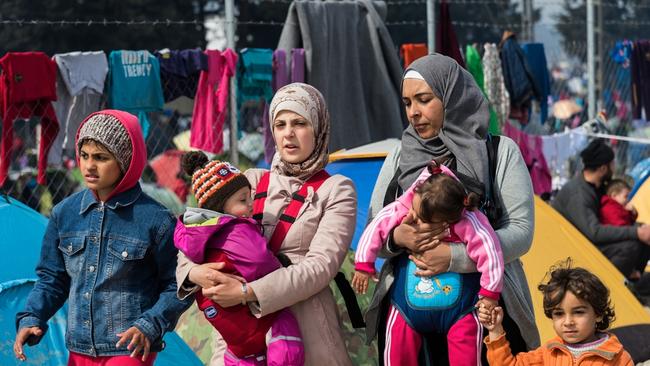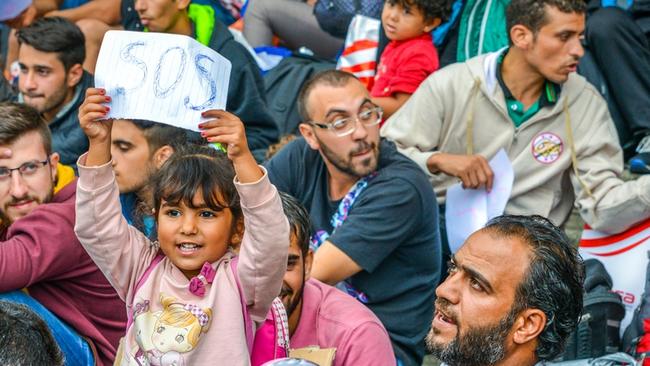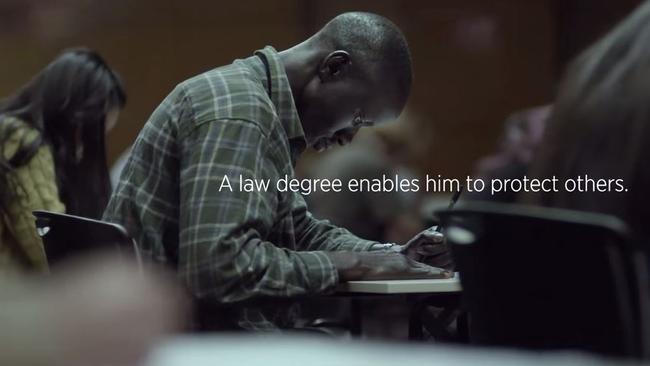Guess what? ‘Mediocre’ refugees are people too
Deeming only accomplished refugees, like doctors and sports stars, as worthy of residency is a needless exercise in cruelty. The majority are average people simply seeking a normal life.

Rendezview
Don't miss out on the headlines from Rendezview. Followed categories will be added to My News.
Meet Anika. At 19, she’s an honours student enrolled in one of the nation’s most prestigious law schools.
You wouldn’t know to look at her, but she came to this country on one of the boats our conservative government pledged to stop by any means necessary. Despite her humble beginnings, she’s expected to graduate with high distinction, and has her sights set on being a judge.
Sound familiar? While Anika is fictional, similar success stories have blanketed social media and bus stops across the country. Refugee advocates use these select anecdotes to prove that boat people are people too, with their own dreams, talents and hopes for the future.
At first glance, this is solid logic — because there’s no doubt that some of the most upstanding would-be members of our society are wasting away in UN tent cities waiting to be processed and accepted into their host country, or crammed into rickety vessels tossed about on the high seas.

We’re talking about a thousand brilliant minds and pairs of hands in areas like medicine and law, just ... going to waste. When you think about it like that, who wouldn’t want to invite more doctors and judges into the fold? Even the most zealous ultranationalist isn’t going to turn away, say, an osseointegration specialist. As is the case with Dr Munjed Al Muderis, who in 1999 sought refuge in Australia by boat from Iraq and spent 10 months in detention, where he was known only as ‘Number 982’. Today he is one of the nation’s top orthopedic surgeons.
And then there’s simply the fact that everyone loves a success story. What’s that saying again? Started from the bottom ...
But what about the other 99 per cent? All those who lack the natural ability to become sporting stars or the book smarts to become surgeons — what about their right to live free of persecution? Sure, they might not have lofty ambitions of transplanting limbs or writing the next great Australian novel, but that shouldn’t impact our treatment of them, should it? Obviously not.
Truth be told, holding all refugees to a higher standard isn’t just a recipe for failure; it’s an exercise in needless cruelty. Because by bombarding consumers with the message that behind every refugee is a master of his profession, there’s the unspoken warning that their stay on these shores is contingent on proving their right to be here — above and beyond what we’d expect from anyone else. And that’s just not fair.

Me, I’d be interested in learning more about the unexceptional refugee. Average grades, average goals, average in every way. Just a regular guy who wants to carve out a happy little life for himself. That description would fit most of the asylum seekers requesting safe passage through our borders. Yet these are the stories we rarely hear in a political landscape that often celebrates or vilifies refugees with no room in between for a middle ground.
Once we afford boat people the right to be mediocre, too, we can engage in a more mature dialogue about refugee rights. To do that, we need to stop idealising and demonising refugees, and instead view them how they are: as people. We’re at least capable of that.
Seb Starcevic is a youth commentator.


